The legalization of cannabis is a controversial topic, with the public opinion quickly changing, on what was once considered to be a dangerous and highly addictive drug. The “just say no” attitude is now being replaced by patients who are using medical cannabis in nearly half of the United States. Public opinion is moving in favor of cannabis legalization at a remarkable pace, as people become increasingly aware that marijuana has incredible medical properties.
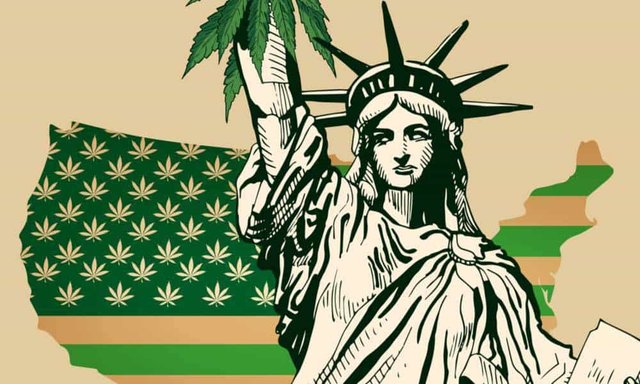
Currently, weed enjoys a legalized status for recreational use in nine states plus D.C. and for medicinal purposes in 29 states. However, the path to cannabis legalization is still long and hard, with many obstacles presented by the greedy, and ignorant people of the world. Although many states have legalized weed, it remains illegal under federal law. The federal government, unfortunately still classifies marijuana as a schedule 1 drug under the scheduling system. This means that it’s perceived to have no medical value and high potential for abuse.
This places pot in the same group as heroin and an even more restrictive category than schedule 2 drugs such as meth and cocaine. This is despite thousands of studies that have all shown cannabis to have incredible medical benefits. Ultimately, the difference between schedule 1 drugs and schedule 2 drugs is that schedule 1 drugs are thought to have no medical value, while schedule 2 drugs are thought to have some medical value. Meanwhile, both tobacco and alcohol, which have the potential for abuse and have no medical value, are exempt from the CSA.

There have been many calls to reschedule weed, but there is one major hurdle; to date, no large-scale clinical trials have been done on weed. These studies are generally required to prove to the federal government that a drug has medical value. However, they are a lot more difficult to conduct when the substance in question is strictly controlled by the federal government as a schedule 1 drug. So essentially pot is trapped in a catch 22. It probably needs a large-scale clinical trial to be rescheduled, but a trial is going to be much harder to conduct unless it’s reclassified.
Lately, matters involving the legalization of cannabis have not been helped by the attorney general, Jeff Sessions. He recently declared that he would be unleashing federal law enforcement to crack down on states where cannabis has been legalized. This is a move that is likely only going to cause more confusion in an industry that is currently worth billions of dollars and one that is set up for exponential growth in the future.
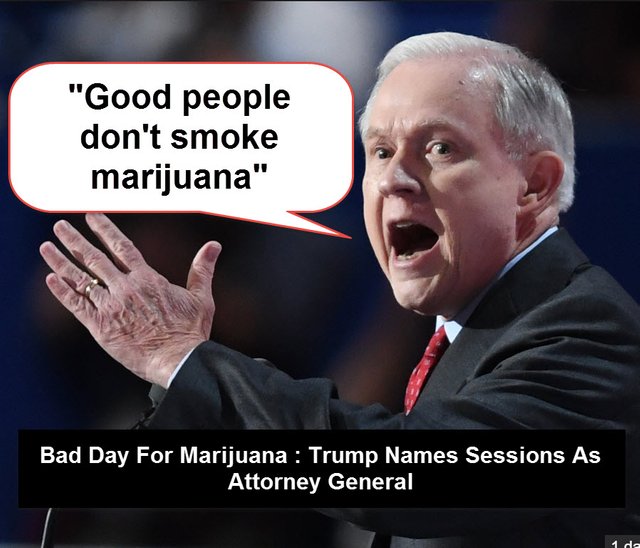
But, all is not gloom and doom. We can be thankful that there are intelligent cannabis advocates out there, who are pushing for legalization on both a state and federal level. Marijuana is set to become legalized nationally in Canada from July 2018, and if we want to see the same results in the United States, it is imperative that we recognize and support the work of those who are fighting for the cause. Here is a list of some of the top organizations that are fighting for cannabis reform and legalization.
The Groups
1. The International Cannabinoid Research Society (ICRS)
The ICRS is an organization that is dedicated to scientific research in all fields of cannabinoids, ranging from chemical, physiological, and biochemical studies of the endogenous cannabinoid system. They act as a source for impartial information on marijuana and cannabinoids with the main role of providing an open forum for researchers to meet and discuss their research. Since they are a non-political, non-religious and unbiased organization, the ICRS isn’t afraid to discuss any of the negative aspects of marijuana.

The ICRS was first incorporated as a scientific research society in 1992. Since then, membership has significantly risen from 50 original members in the first year to more than 500 members from across the world today. The board of directors is entirely made up of highly qualified people who are duly elected and appointed members of the ICRS. Every year the group holds an annual symposium where the leading cannabinoids researchers get together to share information and new ideas.
This summer, the symposium is taking place between July 1-4 in Leiden, Netherlands, and will be covering the following topics:
- Results from current human cannabinoid studies
- The therapeutic potential of cannabis-derived chemicals for the treatment of various conditions
- The role of the endocannabinoid system (ECS) in health and disease
- The actions and effects of drugs that target the ECS
The ICRS is doing great work in proving that marijuana can be used as a genuine medical treatment. With their continuous work and our support, hopefully, someday soon the world will know all about the good of marijuana.
2. Drug Policy Alliance (DPA)
The DPA strives to build a society in which the use and regulation of drugs are grounded in compassion, health, science, and human rights so that people aren’t punished for what they put into their bodies, but rather only for crimes that they commit against others. Ultimately, they envision a world in which the prejudices, fears, and punitive prohibitions of today are no more.
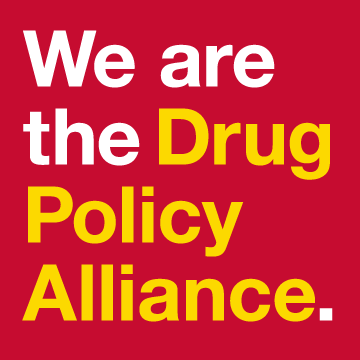
Formed in the year 2000, after a merger between The Lindesmith Center and the Drug Policy Foundation (DPF), the mission of the DPA is to ensure that cannabis is legalized. The organization is adamant that the war on drugs has failed and are now a world leading organization in drug policy reform working to end the war on drugs.
Starting with California in 1996, the DPA claims to have played a pivotal role in about half of all campaigns that have legalized medical cannabis in the United States. As a result, nearly 200 million Americans live in medical marijuana states, and over 60 million live in states where weed prohibition is a thing of the past.
Perhaps most impressive, is that the DPA has been a part of pivotal drug sentencing reforms throughout the last 20 years. These include the approval of Bail Reform in New Jersey, Proposition 36 in California, and the reform of the Rockefeller Drug Laws in New York.
There is no doubt that the DPA is one of the most important pro-cannabis groups in America. If marijuana is ever legalized on a broad scale, they will most definitely be at the forefront. Other important cannabis legalization groups in the states include NORML, Stop the Drug War, ENCOD, Common Sense for Drug Policy, the Marijuana Policy Project, and many others.
The Legislators
We cannot underestimate the work that is being done by organizations like the ICRS and DPA, but the truth is, nothing will be done if the people in power are not acting on the information that they are given. In March 2015, three U.S senators assembled to announce the introduction of cannabis reform legislation. The provisional legislation is known as the CARERS Act, with an aim to provide access to medical marijuana and allow research into the medical benefits of the plant.
However, unfortunately, the CARERS Act joins three other cannabis senate bills that are currently at a standstill, with not much happening as of late. These include The Marijuana Justice Act; sponsored by Cory Booker, The SAFE Banking Act; sponsored by Jeff Merkley and The Small Business Tax Equity Act; sponsored by Ron Wyden.
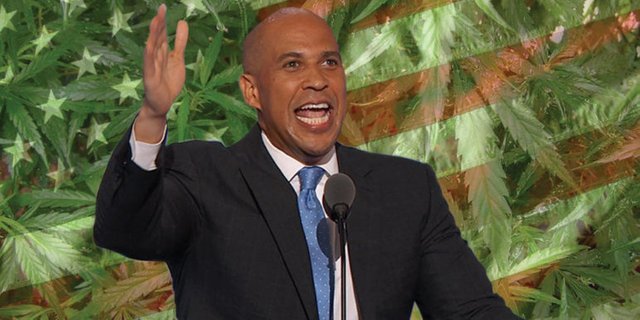
Sen. Cory Booker has put marijuana legalization at the center of his new racial justice bill. He is one of the biggest cannabis legalization advocates in politics and has recently introduced legislation that would legalize cannabis, remove federal marijuana convictions and penalize states with racially-disparate arrest or incarceration rates for weed-related crimes. However, he still faces many obstacles and lacks much-needed support from some high profile people. For example, Dianne Feinstein who is the senior senator of California is notoriously anti-weed. In a state where marijuana is legal for recreational use, we can only hope that Senator Kamala Harris will step up to the plate and safeguard an industry that provides 47,000 jobs in California alone. However, currently, Harris has yet to co-sponsor any reform bills.
There are several senators who have spoken out against the attorney general, Jeff Sessions, and his drastic anti-marijuana campaigns, however, they all sadly refuse to sponsor any of the above four marijuana-related bills. But, since this post is about the people who are fighting to get marijuana legalized, here is a list of the men and women from the Senate, who are doing their best for the marijuana industry, along with the three that we already mentioned above:
- Rand Paul: Paul serves the state of Kentucky where marijuana is illegal, yet he believes it should be legalized.
- Mazie Hirono: The Hawaiian senator is a newcomer to the pro-marijuana cause but has already co-sponsored the SAFE * Banking and CARERS Acts.
- Lisa Murkowski: Co-sponsored the SAFE Banking Act and CARERS Act.
- Cory Gardner: Bennet’s compatriot co-sponsored several bills and is one of the most vocal opponents of Sessions’ war on marijuana.
- Michael Bennet: The Colorado senator is keen to keep his state’s cannabis jobs.
The Citizens
While organizations and politicians are essential in the fight to legalize cannabis, it’s up to prominent and highly influential people to keep the legalization movement in full swing and on the doorstep of Congress. Ultimately, the pot industry needs high profile people to be their “brand ambassadors.”
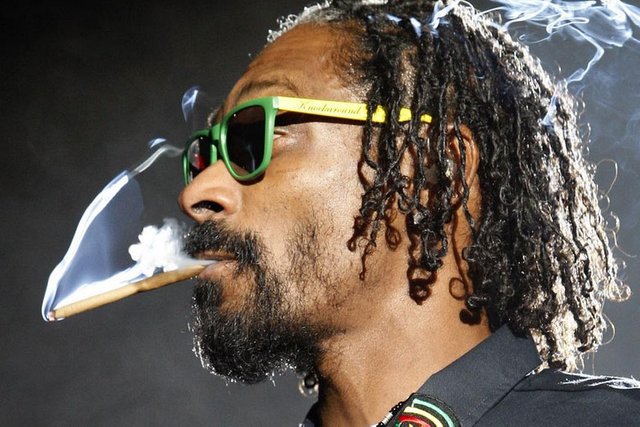
There are many prominent people that are advocating for the legalization of cannabis, but we will stick to these five for now:
1. Snoop Dogg
Not only is Snoop Dogg an outspoken advocate for the cannabis industry, but he is also a keen "potrepeneur." Last year Snoop partnered with Canopy Growth in Canada to sell three variations of marijuana under the "Leafs by Snoop" brand. He is, of course, also an avid weed smoker himself.
2. Woody Harrelson
Harrelson is on the advisory board for the National Organization for the Reform of Marijuana Laws and is hoping to use his influence to advance the uses of marijuana.
3. Jesse Ventura
He might just be the biggest cannabis advocate in the country. He even has a book; Jesse Ventura's Marijuana Manifesto, which suggests that marijuana should be legalized for both medicinal and recreational purposes.
4. Jack Nicholson
The actor doesn’t often talk discuss his views on weed, but when he does, everyone takes note. In fact, in 2011, he discussed an often overlooked reason for legalizing cannabis. He stated that 85% of men jailed in America are in on drug-related offenses. He then pointed out that it costs $40,000 a year per prisoner. He believes that the legalization of marijuana would be a great thing for the economy.
5. Morgan Freeman
The actor suffers from fibromyalgia pain in his left arm and has stated that weed is the only substance that gives him any relief. He is also well aware of its various other medical qualities and is a staunch advocate for the legalization of weed.

Thank you for reading! Follow us and leave a comment with what topic you want covered in the next post!
Read more:
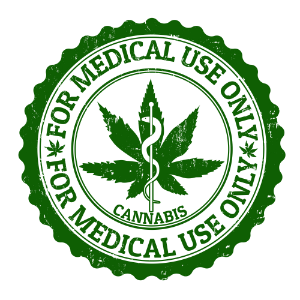
Your post are very helpful for many kinds of men who has suffer from many problem.They know that cannabis are harmful for them.but they can't get away from there easily.when they follow your advertisment then can get an easy way to solve their problem.
@medicalmarijuana thanks for your helpful post.
Downvoting a post can decrease pending rewards and make it less visible. Common reasons:
Submit
In Utah (Yes Utah of all places) we are voting on medical marijuana this Nov. I think it will pass 60%-40%. The Libertas Institute in Lehi, Utah is a wonderful non-profit libertarian think tank that actually gets stuff done. https://libertasutah.org/
Downvoting a post can decrease pending rewards and make it less visible. Common reasons:
Submit